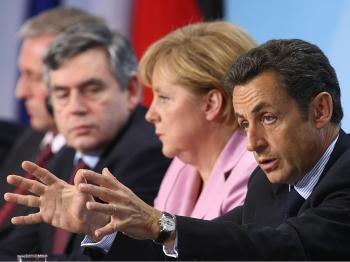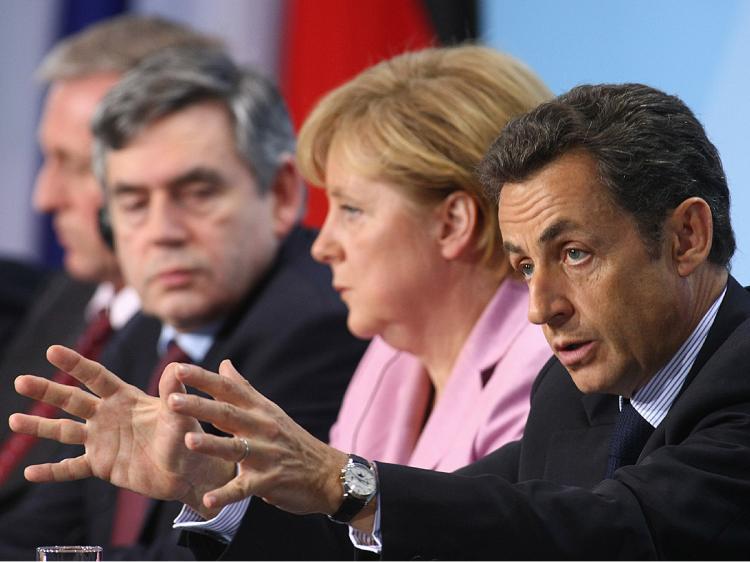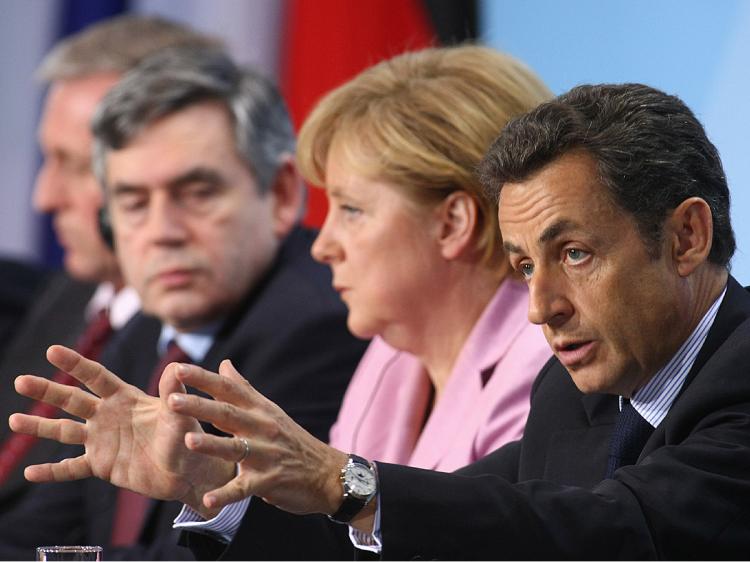Countries in the European Union are facing tough challenges financing public sectors, and overall the most developed countries are the ones struggling the most.
Each year the EU commission takes under scrutiny long-term budgetary projection programs of its member states under the established Stability and Growth Pact (SGP)—a framework that coordinates each country’s financial policies.
EU member states that have dwindling economic stability, according to experts, have proved to be better survivors, revealed the recent assessment of 21 countries so far.
In contrast, developed countries in Western Europe now have to use all of their economic clout as they show signs of economic weakness.
Countries like the U.K. and Ireland are categorized as having a steep economic slowdown. With rising unemployment figures up to 1.97 million or at 6.3 percent, the U.K. confirms rapid deterioration of public spending that severely affects the sustainability of its public finances.
After more than a decade of strong economic growth, Ireland is now going through a severe recession as well. The slump was caused primarily by the global financial crisis. Factors like the sharp decline in activity in the housing markets, and the recession in Ireland’s main trading partners, the United States and the U.K., have been attributed to the overall economic downturn in the country. These developments have led to a very sharp deterioration of Ireland’s public finance sectors, with the government’s balance going from a small surplus in 2007 to an estimated deficit of 6.3 percent of GDP in 2008 and increasing to 9.5 percent in 2009, the EU commission assesses.
Economic Slowdown
The global financial crisis hasn’t spared some of the strongest Scandinavian countries. Sweden, Denmark, and the Netherlands enjoyed prolonged economic stability and considerable growth, but the sharp fall of world trade and the collapse of the financial markets have thrown these countries in a cyclical economic slowdown posing serious challenges to them in 2009.
The situation with France and Germany seems alleviated as both courtiers are adopting stimulus plans.
Germany took on a timely sizeable fiscal stimulus package between the autumn 2008 and January 2009 in line with an EU Recovery Plan. The stimulus focuses on income support, public and private investment, access to financing, avoiding lay-offs, improving qualifications, and providing measures for support of the automotive industry.
In response to the economic crisis, the French government unveiled in December 2008 a multi-billion dollar recovery plan amounting to 1.3 percent of GDP, primarily targeting the housing and transportation economic spheres.
Small EU states like Bulgaria, Luxemburg, Greece, and Poland, in contrast, show signs of relative stability owing to reports of budget surpluses.
The two Eastern EU neighboring countries of Bulgaria and Greece have experienced economic growth over the past decade. Greece has shown annual growth of 4 percent, while Bulgaria keeps a sound budgetary position reflected by an annual growth of 6 percent per year since 2003, reports the EU commission in its assessment.
These economic expansions haven’t come without a cost. Bulgaria is troubled by a widening external deficit and still has high inflation. Greece’s domestic and external macroeconomic imbalances have broadened considerably, which has led to very high public and foreign debt. The ongoing global economic and financial crisis is taking its toll on the economy and putting pressure on the debt burden.
Assessments and Policy
Countries’ annual assessments provide a mechanism for the EU Commission to directly address policy recommendations to a Member State, and issue early warning to prevent occurrences of an excessive deficit.
Economic policies are suggested and implemented at both the national and European level. The assessments are seen against the present background of a sharp economic slowdown. A majority of the countries concerned have decided to adopt fiscal stimulus measures in 2009 or had adopted the measures even earlier to deal with the global economic crisis, in line with an Economic Recovery Plan proposed by the EU Commission and endorsed by EU leaders.
Indeed, economic policy is primarily a national responsibility, but the Member States have gathered resources and exhibited the political will to emerge even stronger through this current economic crisis.






